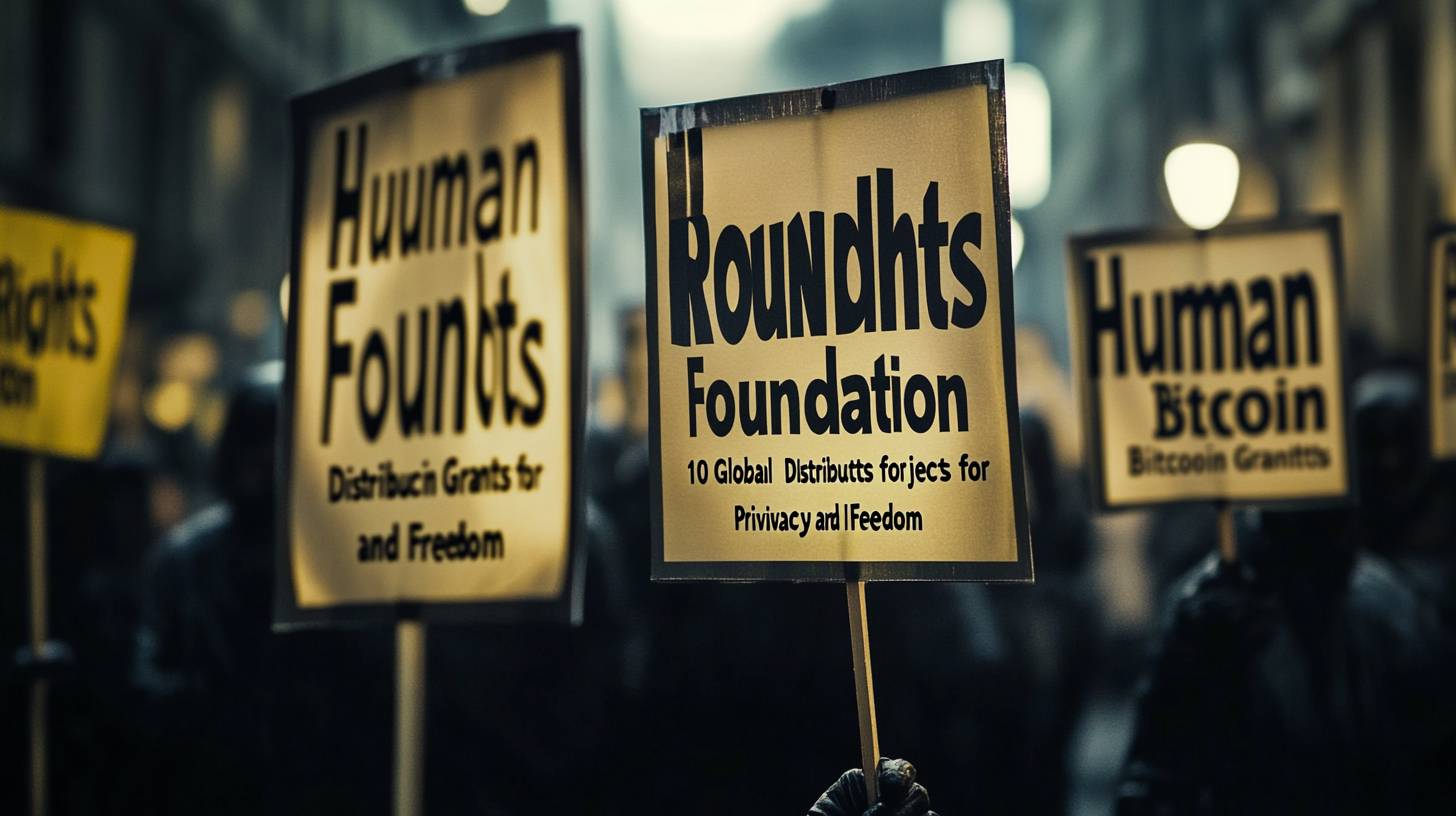
Recipients of Bitcoin Development Fund Grants
The Bitcoin Development Fund by the Human Rights Foundation is not merely about distributing funds; it aims to strategically empower areas where financial liberty is imperiled. The emphasis on Latin America, Asia, and Africa is intentional. Millions live under authoritarian regimes in these regions, facing restricted or outright banned access to free financial systems. Bitcoin’s decentralized structure provides individuals in these locations a means to store and transfer value independently from traditional financial institutions that may be compromised or controlled by oppressive governments.
- African Bitcoiners: A community-oriented initiative aimed at introducing Bitcoin to African audiences through educational courses, free Lightning payment routing, and facilitating airtime purchases with Bitcoin. The grant will aid in developing educational resources and managing operational costs.
- Stratospher: A Bitcoin Core developer focused on boosting privacy and decentralization within the Bitcoin protocol. The funding will support full-time development initiatives, such as improvements to peer-to-peer (P2P) network privacy.
- Coracle: A Nostr web client intended to create a censorship-resistant social media environment. The grant will be directed towards hiring a full-time developer to upgrade privacy functionalities and community tools.
- Harbor: An open-source ecash wallet dedicated to enhancing Bitcoin privacy, supervised by Ben Carman and Paul Miller. The grant will facilitate the launch of Harbor’s 1.0 production version.
- The 256 Foundation: Supporting the Bitaxe initiative that seeks to make Bitcoin mining more user-friendly and discreet, particularly in authoritarian settings. Funds will be allocated to enhance the Bitaxe form factor for increased accessibility.
- Kiveclair: A community in the Democratic Republic of Congo dedicated to educating individuals about Bitcoin. The grant will assist in organizing meetups, creating educational materials, and purchasing necessary equipment.
- Jeff Gardner: A developer dedicated to implementing end-to-end encryption in Nostr Direct and Group Messages. The grant will support ongoing development and conduct a security audit.
- Silentium: A self-custodial Bitcoin wallet featuring built-in Silent Payments, designed by Louis Singer. The grant will promote infrastructure development and allow for the hiring of a software developer.
- BTC Shule: An educational initiative in Burundi empowering citizens with Bitcoin knowledge and skills. The grant will support creating a bilingual platform, establishing a physical center, and fostering community support groups.
- EttaWallet: An open-source, self-custodial mobile Lightning wallet developed by Collin Rukundo. The grant will facilitate ongoing development, localization efforts, and community expansion.
- Tor relay operator associations: Funding will aid in deploying nodes to enhance the stability and reliability of the Tor network, essential for human rights defenders and Bitcoin users.
- Rikto Xonghoti: A Bitcoin education initiative in Assam, India, focused on establishing a Bitcoin circular economy. The grant will support educator salaries, the establishment of a physical center, and the acquisition of Bitcoin nodes and mining gear.
- Yes Bitcoin Haiti: A grassroots initiative educating Haitians about Bitcoin. The grant will back educational workshops, translation of materials into Haitian Creole, and purchasing equipment.
- Bitcoin Indonesia: An educational platform in Bahasa Indonesia designed to grow the local Bitcoin community. The grant will fund content creation, community outreach, and operational costs.
- Bitcoin++: A Bitcoin-only developer conference series organized by Lisa Neigut. The grant will cover travel expenses for developers from authoritarian nations to attend the upcoming conference in Berlin.
- TABConf: A Bitcoin conference in Atlanta, GA, dedicated to promoting collaboration among developers. The grant will aid in covering conference expenses and travel costs for developers needing financial assistance.
- Baltic Honeybadger: A non-profit, Bitcoin-only conference advocating for financial freedom and privacy. The grant will cover travel costs for activists and defenders of human rights.
- LaBitconf and Descentralizar: Two annual Bitcoin conferences in Argentina. The grant will support travel expenses for developers and keynote speakers, in addition to conference materials.
- Satsconf: The largest Bitcoin-only conference in South America, taking place in São Paulo, Brazil. The grant will assist with travel expenses for speakers, event logistics, and a hackathon.
- Solidarity Summit: Standing with Political Prisoners: A Vienna-based event uniting former political prisoners and human rights advocates. The grant will help add a financial freedom component and produce a documentary.
Areas of Focus and Regional Influence
In Latin America, for instance, nations like Argentina and Venezuela have long struggled with hyperinflation and economic volatility. Bitcoin serves as a safeguard against local currency devaluation, while initiatives like LaBitconf and Descentralizar play a crucial role in raising awareness and educating on the potential of Bitcoin as a financial sovereignty tool. Likewise, Satsconf in Brazil facilitates the development of a strong Bitcoin community in South America, highlighting the increasing necessity for alternative financial structures.
Asia also constitutes a primary focus area, with projects like Rikto Xonghoti in India working towards establishing a Bitcoin circular economy. In regions marked by rampant financial surveillance, Bitcoin’s privacy features provide a means for individuals to conduct transactions without fear of government scrutiny. The progression of privacy-boosting technologies, such as those being developed by Stratospher and Silentium, is essential in these areas, where private transactions can be crucial for personal safety.
Source: bitcoinmagazine.com
For Australians, the international dimension of these initiatives underscores Bitcoin’s capacity to enact positive change beyond our own shores. While Australia benefits from a relatively stable financial framework, this is not the reality for numerous regions globally. By endorsing projects that concentrate on education, privacy, and decentralization, the HRF is contributing to a more inclusive and resilient global financial system—one from which Australians may also reap benefits as Bitcoin adoption escalates locally.
Today, the Human Rights Foundation (HRF) unveiled its most recent Bitcoin Development Fund grants, allocating 10 BTC (roughly Africa’s focus centers on education and infrastructure. Initiatives like African Bitcoiners and Kiveclair are onboarding new Bitcoin users, equipping them with the skills and knowledge essential for navigating the Bitcoin landscape. Such projects are vital in areas where conventional banking services are scarce and mobile money solutions already have significant traction. Bitcoin further advances this concept by offering a decentralized option free from government or corporate ties.

